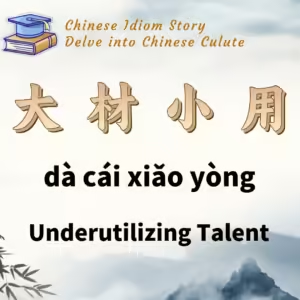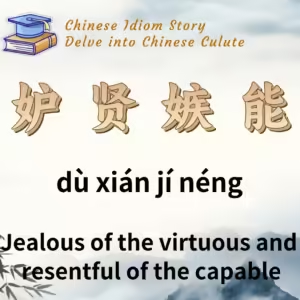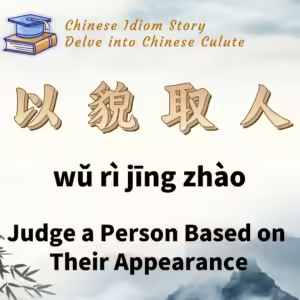
Chinese Idiom: 量才录用 (Liang Cai Lu Yong)
English Translation: Assessing Talent for Employment
pīn yīn: liàng cái lù yòng
Idiom Meaning: This idiom means to assign appropriate jobs based on the assessment of a person’s talents and abilities.
Historical Source: From The Book of Han (汉书), specifically the biography of Dong Zhongshu.
Idiom Story:
Dong Zhongshu was a renowned scholar from Guangchuan (modern-day Zaoqiang County, Hebei). He held positions as a doctor and governor of Jiangdu, and he was among the talented individuals selected by Emperor Wu of Han, who was known for promoting virtuous and literary figures.
In 141 BC, after the death of Emperor Jing of Han, who succumbed to a serious illness at the age of 48, Emperor Wu Liu Che ascended to the throne. Immediately upon taking office, he issued a decree to gather talent, urging the Chancellor, Censors, regional governors, and royal relatives to recommend virtuous individuals. Many people were sent to the capital from various regions, and Emperor Wu personally assessed their knowledge. As a result, the court became a temporary examination hall.
Emperor Wu enjoyed reading well-structured and eloquent articles, so he asked each candidate to write a piece on governance. Once completed, he reviewed them one by one. The majority of the submissions were mediocre, but he found Dong Zhongshu’s work to be the best. The emperor read it multiple times and even had two separate discussions with Dong.
In his writings, Dong Zhongshu argued that a wise ruler governs not through punishment but through education. By using benevolence, righteousness, propriety, and music to educate the people, a ruler could elevate the moral spirit and suppress wrongdoing, thereby preventing the populace from committing crimes or causing chaos. To gather talent, the government needed to cultivate it, adhering to the principle of “selecting the virtuous and capable, assigning roles based on abilities, and positioning according to moral character.” This meant that competent individuals should be chosen for official positions commensurate with their talents and virtues. Just as a piece of jade must be carved to become a beautiful artifact, talent requires nurturing, which necessitates the establishment of schools and a unified theory to educate and cultivate the populace.
Dong Zhongshu also advocated that, aside from Confucius’s teachings, all other philosophies should be prohibited. His rejection of diverse schools of thought in favor of Confucianism was adopted by Emperor Wu, establishing Confucianism as the orthodoxy in Chinese feudal society for over two thousand years.
Based on this story, people later simplified the phrase “量材而授官,录德而定位” to the idiom “量才录用,” emphasizing the importance of assessing talent for appropriate employment.






